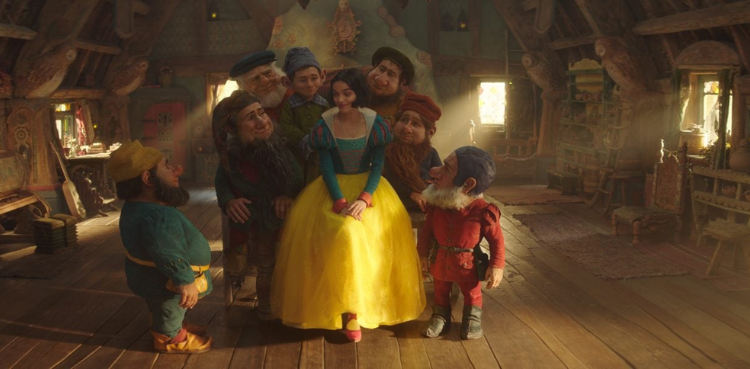Disney’s Woke Snow White Remake Falls Flat And Here Are Some Reasons
- By Nida Faraz -
- Mar 28, 2025

Disney’s latest live-action remake, Snow White, is a textbook example of how forced progressivism and corporate pandering can drain the soul out of a beloved fairy tale.
While the film boldly reimagines its heroine as a fiercely independent warrior-princess—eschewing the original’s romantic idealism—it fails to replace that classic charm with anything meaningful.
Instead, audiences are left with a visually sterile, emotionally vacant spectacle that prioritizes political messaging over storytelling. Rachel Zegler’s Snow White may not need a prince, but the film desperately needs a reason to exist beyond Disney’s shallow attempt to check off modern inclusivity boxes.
A Story Stripped of Its Heart
The 1937 animated Snow White and the Seven Dwarfs was a landmark achievement, blending enchanting visuals, memorable songs, and a timeless fairy-tale warmth. This remake, however, feels like a checklist of corporate-mandated “updates” rather than a labor of love. Gone is the delicate balance of innocence and peril that made the original so captivating—replaced by a generic “girlboss” narrative that lacks depth. Snow White’s journey no longer feels organic; instead, it’s a manufactured empowerment arc, complete with clunky dialogue about self-reliance that sounds more like a corporate diversity seminar than a fairy tale.
Director Marc Webb, whose previous work includes the middling Amazing Spider-Man films, seems ill-suited for a musical fantasy. His direction lacks the whimsy and visual splendor required for a story about magic mirrors and enchanted forests. The film’s CGI-heavy world feels artificial, with the dwarfs (now awkwardly referred to as “magical creatures” to avoid offending modern sensibilities) rendered through unconvincing performance-capture. The decision to sideline the dwarfs—once the heart of the story—in favor of a bland, politically correct rewrite robs the film of its most endearing characters.

The Curse of Woke Tokenism
Disney’s obsession with “modernizing” its classics has reached a breaking point. Rather than crafting nuanced, organically progressive stories, the studio slaps on superficial changes that often contradict the source material. Snow White’s original tale was one of kindness triumphing over vanity—a universal theme. But this remake reduces her to a stock “strong female character,” devoid of the gentleness that made her iconic. Meanwhile, the Evil Queen (Gal Gadot) is all style and no substance, lacking the chilling presence of the animated version.
The film’s musical choices further highlight its identity crisis. While it retains classics like Heigh-Ho and Whistle While You Work, they’re drowned out by overproduced new tracks that feel like rejects from Frozen or Tangled. The exclusion of Someday My Prince Will Come—a deliberate snub to the original’s romanticism—sums up the film’s misguided approach. Instead of reinterpreting the song to fit a more independent Snow White (as Frozen did brilliantly with Love Is an Open Door), Disney simply erases it, as if ashamed of its own legacy.
A Box Office Spell Doomed to Fail?
The controversy surrounding Snow White has been almost as dramatic as the film itself. From Zegler’s dismissive comments about the original to the awkward handling of the dwarfs’ portrayal, the PR rollout has been a disaster. Early reviews have been scathing, with critics panning its lifeless execution and lack of magic. Families may opt for Kung Fu Panda 4 or Dune: Part Two instead, leaving Snow White to face the same fate as Strange World and Lightyear—box office failures blamed on “audience bias” rather than poor filmmaking.
A Kingdom Lost to Woke Alchemy
Disney’s Snow White remake is a cautionary tale of what happens when a studio values political posturing over storytelling. Instead of enhancing the original’s themes with fresh perspective, it strips them away, leaving behind a hollow shell of corporate-approved “progress.” The film’s failure isn’t due to its feminist message—Frozen, Moana, and Brave proved that audiences love empowered heroines—but because it prioritizes messaging over magic. In trying to please everyone, Disney has pleased no one, delivering a film that feels neither faithful nor bold—just forgettable.
If this is the future of Disney’s live-action remakes, perhaps it’s time to stop digging up the past and start telling new stories. Until then, the fairest one of all remains the 1937 classic—untouched by the studio’s misguided attempts to “fix” what was never broken.
